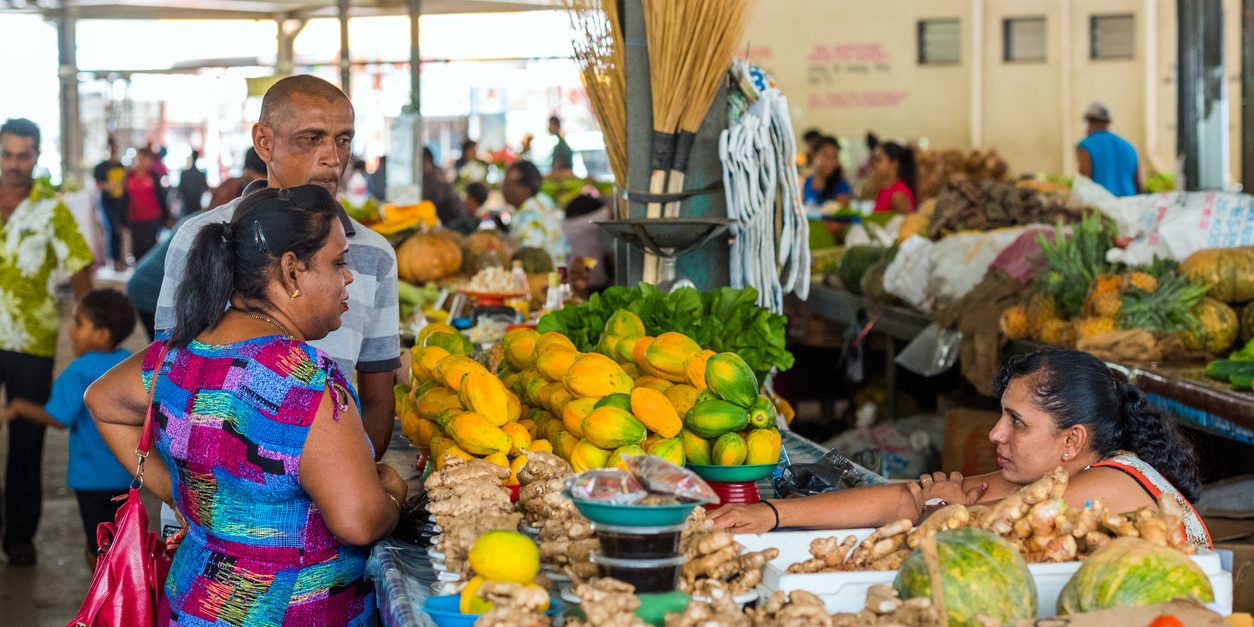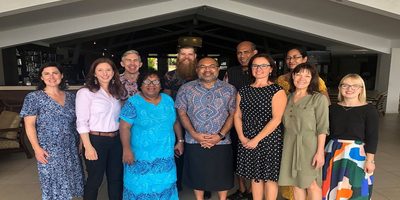
A gendered approach to reduce diet-related disease in Fiji
A new study shows the need for a greater focus on gender in nutrition policies to reduce diet-related non-communicable diseases (NCDs) in Fiji.
Published in the International Journal for Equity in Health, the paper came from a collaboration between The George Institute for Global and Fiji National University, with support from researchers from New Zealand and the UK.
Lead author, Dr Briar McKenzie, Research Fellow at The George Institute, says, “We analysed nutrition and health-related policies in Fiji and while Fiji does have a cross-cutting gender policy, this study found there was scope for including gender considerations across policies in an actionable way to achieve more equitable health outcomes across the population.”
Diet-related non-communicable diseases are the leading causes of death globally.
The burden of NCDs is increasing disproportionately among women in low- and middle-income countries compared to high-income countries. Within Fiji’s population of approximately 900,000 people, 42% of women and 22% of men live with obesity. In 2011, Fijian women were found to be more likely than men to have three or more of five key NCD risk factors: current smoking, consuming less than five servings of fruit and vegetables per day, low levels of physical activity, being overweight and/or having raised blood pressure.
Further, a high prevalence of iron deficiency anaemia - particularly in women - was identified in the country’s 2014 National Nutrition Survey. Creating and implementing gender responsive policies is therefore important for Fiji achievement of the UN Sustainable Development Goals of good health and well being and gender equality.
“These numbers show that there are gender differences in NCD risk in Fiji, so there is an urgent need for a gender-responsive national policy response,” says co-author Gade Waqa from Fiji National University.
The study included three components:
- current policy content analysis of gender inclusion in nutrition and health-related policies
- policy analysis using the WHO Gender Analysis tool to identify opportunities for strengthening future policy
- stakeholder interviews to understand perceptions and scope for gender considerations.
It found that while gender equality is a stated goal in several nutrition and health-related policies in Fiji, only one policy was ranked as gender responsive, namely The National Gender Policy. The new analysis has identified further opportunities and suggestions to steer a gendered response to nutrition and health challenges.
The recommendations include:
- framing gender considerations in policies
- driving advocacy through actor networks across key stakeholders including government, industry, civil society
- ensuring that data collected to monitor policy implementation is disaggregated by sex, and inclusive of gender identities
- promoting equitable participation at a community and governance level.
This study is part of a broader program of work funded by the Australian National Health and Medical Research Council and undertaken by researchers from Fiji National University, The George Institute for Global Health, University of Sydney, and Deakin University to support the scale-up of food policy interventions in Pacific Island countries.
Find out more about this project.









